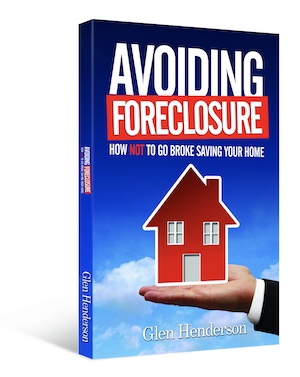Can I Stop Foreclosure?
The foreclosure process is long, with several twists and turns along the way. The good news is this: until your home is auctioned at the courthouse, the foreclosure process is not over. Stopping the foreclosure process and retaining your house generally requires one of three things:
● Filing for bankruptcy
● Clearing the owed balance on the mortgage
● Negotiating a refinancing or loan modification
If you’re unable to stop the foreclosure with one of these methods, you might be able to mitigate the damage to your credit score through other means.
Ways to Stop Foreclosure
Bankruptcy
There are many good and bad effects that come from bankruptcy, and it is certainly a decision that affects a lot more than just your house. But chapter 13 bankruptcy can help you save your home from foreclosure because it freezes the foreclosure process and gives you a chance to catch up on payments and mitigate other debts.
Bankruptcy places your home into an “automatic stay”, which prevents any collections or foreclosures from being made on your home. In a chapter 13 bankruptcy, you can spread out your current mortgage over a 3-5 year repayment plan, which can help you come current on the outstanding payments.
Cure the Default
Of course, you can always stop foreclosure from happening by removing the source of the foreclosure in the first place: missed payments. Bring your account up to date and show that you’re still going to be able to make payments moving forward, and your lender can’t actually go through with the foreclosure process. If you have any way of curing the default at any time during the foreclosure process, even right up until the sale itself, you should make every effort to do so.
Refinance or Modify the Mortgage
In cases where you can show that you are not in dire financial straits, you’ve only missed a payment or two, you might be able to get refinancing or a modification to the loan. If you think that you could keep up with the mortgage but at a lower monthly rate, then you should immediately contact your lender to explain your situation and request lower monthly payments.
You should begin a conversation about modifying the mortgage even before you’ve missed a payment. If you become aware that you have a difficulty making a payment soon, don’t wait until you’ve missed. You want to look as prepared and on top of your game as possible. It’s always scary and embarrassing to contact your lender and inform them that you can’t pay—but you won’t make things better for yourself by withholding that information! Be up front with them about your difficulty.
Preventing Foreclosure from Affecting Your Credit
In cases where you cannot save your house, but want to mitigate the damage of losing your house to your future ability to get a mortgage, you have a couple of options: short sale and deed in lieu. Deed in lieu basically just shortens the foreclosure process and doesn’t do a whole lot to rescue your credit score. Short sales, on the other hand, are difficult to snag but can really help you get another mortgage immediately.
Short Sale
If your lender files a notice of default, and you don’t expect to make good on the payments anytime soon, you can begin aggressively trying to find a buyer for your home. If you can find a buyer for a decent sale price, you can try to get the lender to agree to the short sale. Short sales for decent prices can recover a lot of money for the lender and save them the time and hassle of going through the foreclosure process.
Short sales are really good for borrowers because they avoid the worst hit to credit scores which can occur when foreclosure is completed. If foreclosure is inevitable for you as a borrower, definitely attempt to make a short sale to salvage what you can of your score.
Deed in Lieu
A deed in lieu is an effective foreclosure, because you sign the home deed back over to the lender. But you avoid a bad part of foreclosure—the long process. Sometimes lenders won’t take a home back through deed in lieu of foreclosure because they don’t want you to sue and allege that you didn’t understand what was happening. Additionally, they would become responsible for second mortgages and any lines of credit taken out in the name of your house.
Deed in lieu usually will not be granted unless foreclosure is imminent. While it isn’t as bad for your credit score as outright foreclosure, most lenders will look on a deed in lieu in a similar way. So you’ll want to avoid this option as well.




